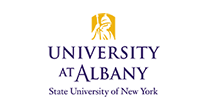News
August 29, 2019UAlbany Archeologist Leads $1.6 Million Project to Reconstruct Prehistoric Climate Change in Northern Belize
A team of interdisciplinary researchers are turning to a global event 4,200 years ago for insight on human adaptation to climate change.
The project, led by University at Albany archeologist Robert Rosenswig, has received $1.6 million in funding over five years from the National Science Foundation (NSF) to reconstruct human occupation, food production and tropical forest species diversity in the lowlands of northern Belize around the “4.2k BP” event.
The 4.2k BP event was a 300-year global drought that many scientists believe caused the collapse of several ancient civilizations, including the Old Kingdom in Egypt and the Akkadian Empire in Mesopotamia. Evidence of this catastrophic climatic event has been found on all seven continents.
Yet, according to Rosenswig, populations in Central American regions, including northern Belize, saw an increased population level in response to the same climatic changes that caused Old World civilizations to collapse.
“Historically, we’ve seen that climatic disturbances affect people with different adaptations and levels of political complexity in different ways. However, most of our discussions are framed only in terms of recent decades and centuries,” said Rosenswig, an associate professor in UAlbany’s Department of Anthropology. “This constitutes only a small fraction of the human experience, and gives us a limited subset of how human societies have adapted to, and modified, the environments in which they live.”
“There’s many lessons to be learned today from thousands of generations of human responses to changes in the environment,” he added.
Through the project, Rosenswig and his team will combine advanced computational climate modeling with archaeological excavations and lake sediment coring in the lowlands of northern Belize to reconstruct the region at 3,000 to 6,000 years ago. As evidence is gathered, the team will be evaluating human settlement, diet and vegetation patterns from before, during and after the 4.2k BP event.
Six UAlbany graduate students joined Rosenswig in Belize this summer to begin fieldwork. A core component of this project will be training of students, who will participate in all aspects of the research, including fieldwork, laboratory proceedings, data analyses, presentation of results in conferences and contributions in peer-reviewed scientific publications.
Rosenswig’s latest round of funding adds to the $300,000 he previously received from the NSF, now totaling $1.9 million.
“Our project is going to be transformative in advancing basic understanding of interactions between human food production and tropical forest ecology in response to climate change,” Rosenswig said. “In some ways, the 4.2k BP event parallels what we’re experiencing today. Our hope is that we can provide insight that helps future generations become more resilient to the changes that are still to come.”
Joining Rosenswig on the project as co-principal investigators are Megan Walsh of Central Washington University; Douglas Kennett of the University of California, Santa Barbara; Christopher Morehart of Arizona State University; and UAlbany colleague Mathias Vuille of the Department of Atmospheric and Environmental Sciences. Senior personnel include Karin Reinhold of UAlbany’s Department of Mathematics and Statistics and Jaime Awe of Northern Arizona University, who also serves as the director of the Belize Valley Archaeological Reconnaissance Project.
NSF funding will run through around June 30, 2024. You can learn more about the award here.



























